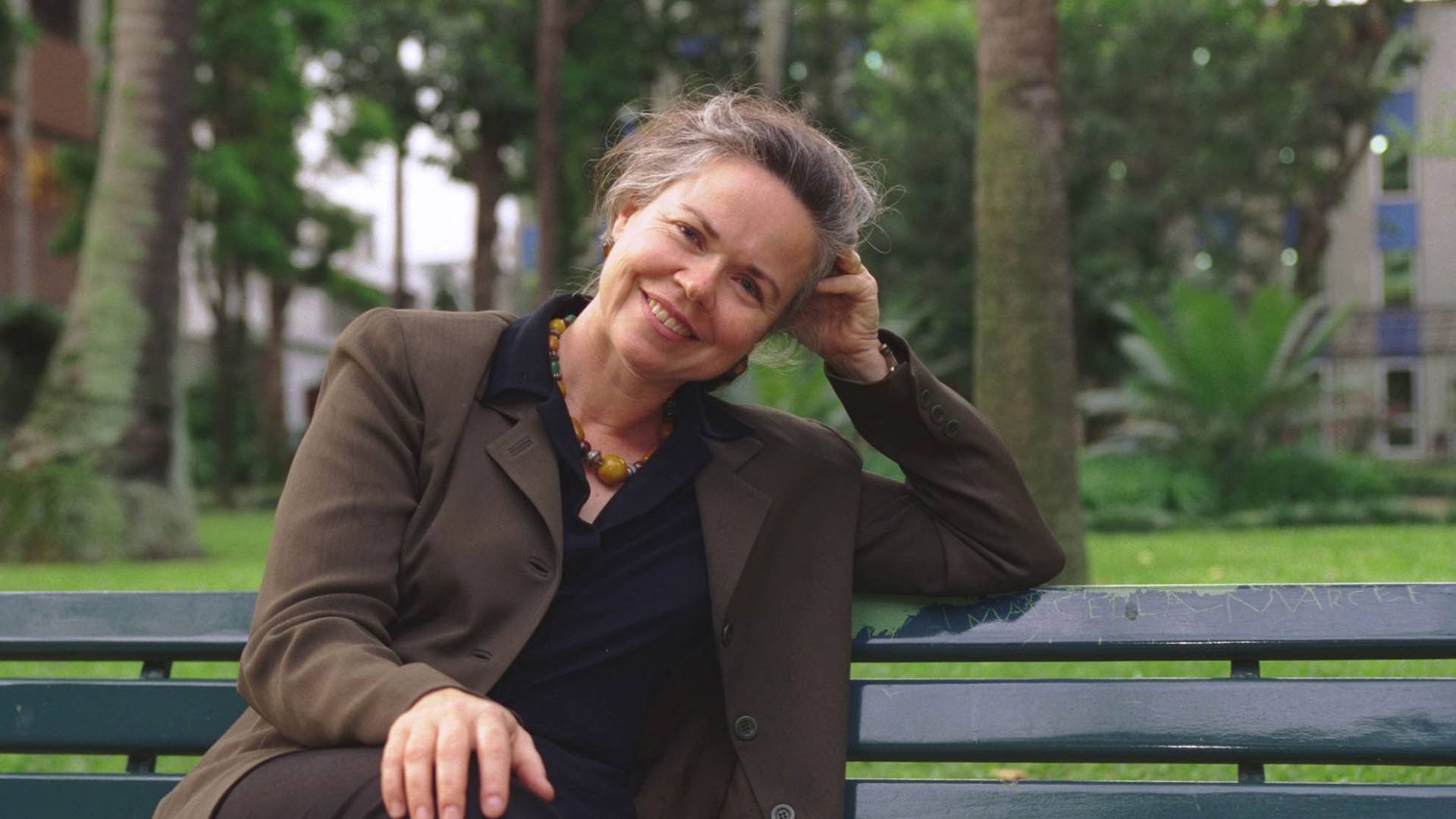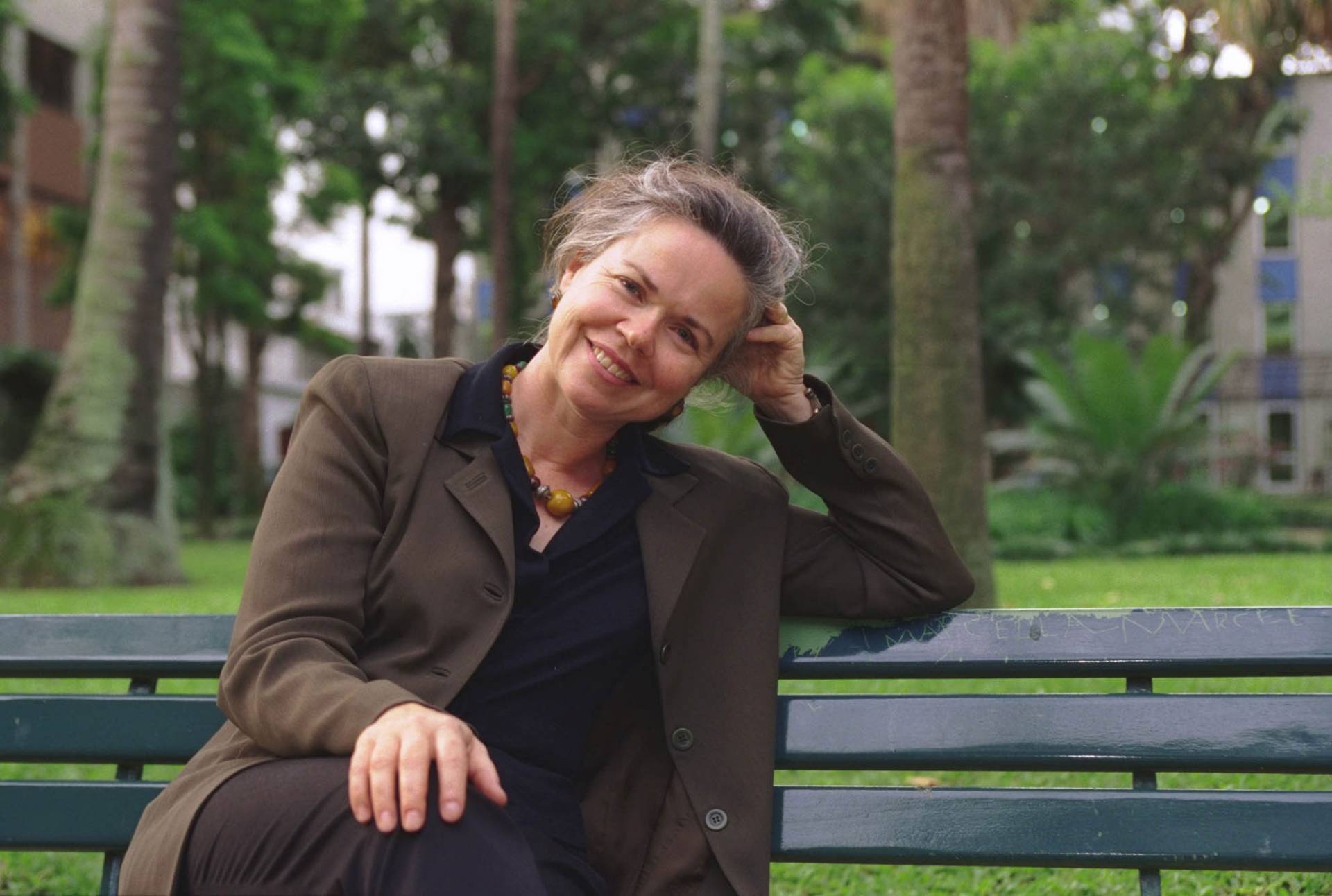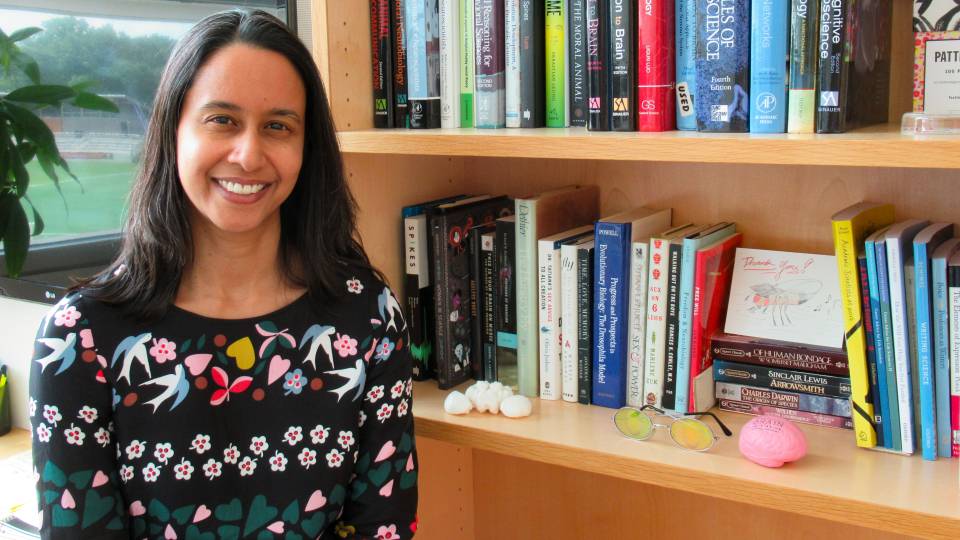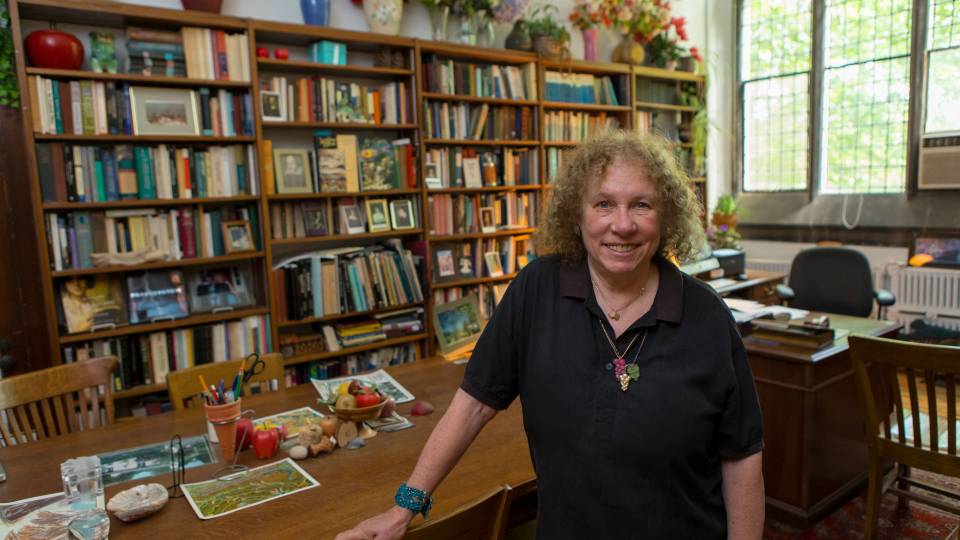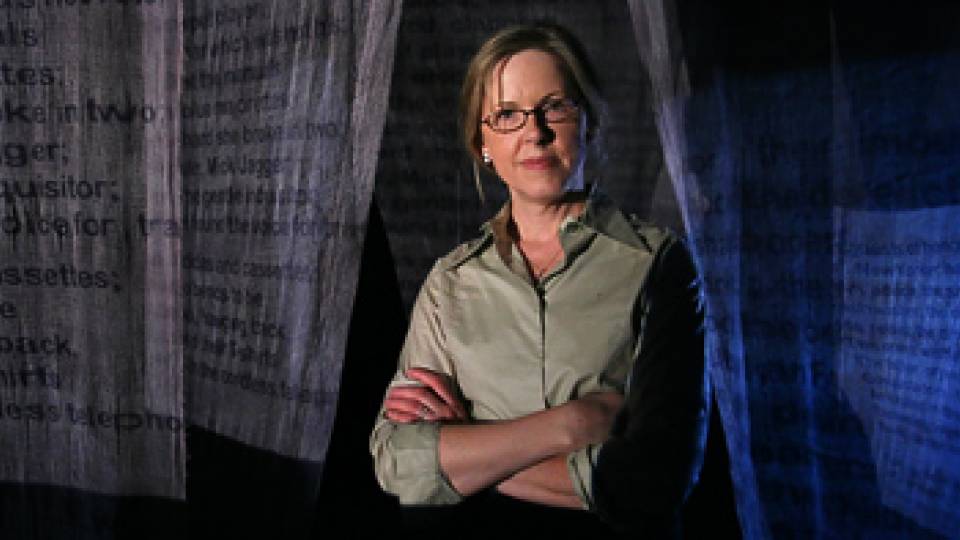Susan Stewart is the Avalon Foundation University Professor in the Humanities and professor of English. She also serves as director of Princeton's Society of Fellows in the Liberal Arts and is a member of the associated faculty of the Department of Art and Archaeology. A poet and critic, Stewart joined Princeton in 2004 and teaches the history of poetry, poetics, and issues in aesthetics.
A former MacArthur Fellow, Stewart is the author of five collections of poetry. She has also translated and co-translated works by French and Italian poets. Her newest book, "Cinder" (Graywolf Press, 2017) is her first retrospective of new and selected poems. In 2014, she received the Behrman Award in the Humanities from Princeton.
Stewart has collaborated with visual artists and musicians, including the Chicago Symphony. Most recently, she and the artist Ann Hamilton collaborated on a multi-venue installation "habitus," featuring Stewart's poetry on a fabric "reel" created by Hamilton, weaving together text, textile, and image.
With colleagues in the Department of English, Stewart is organizing the conference "A Dialogue in Chinese and English Poetics," March 27-31, at Princeton, hosting a group of poet-scholars from China, with support from the David A. Gardner '69 Magic Grants of the Humanities Council, the Department of English and the Program in East Asian Studies. A reading by the poets will take place at 3 p.m. Friday, March 31, in McCormick Hall, Room 101.
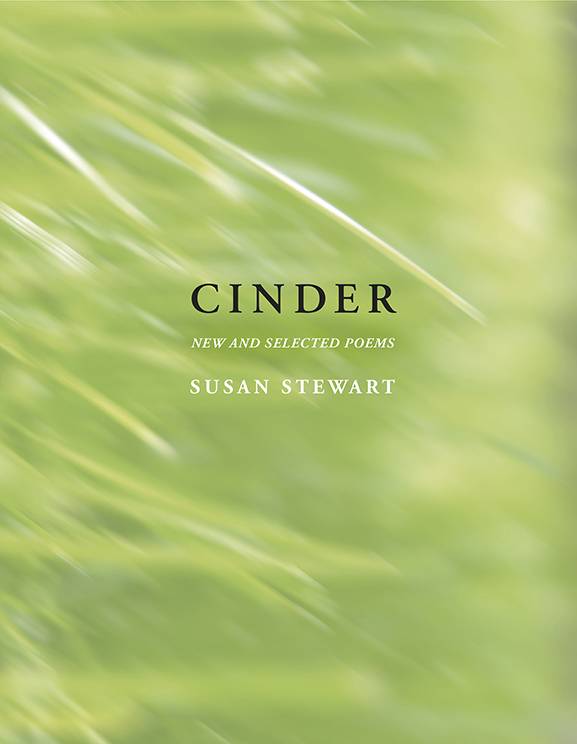
“Cinder" is the latest book by Susan Stewart, the Avalon Foundation University Professor in the Humanities and English professor at Princeton. (Book image courtesy of Graywolf Press)
What was your lens for choosing the poems for this book?
Each of my books has had a particular theme and historical focus. For example, "Columbarium" is an alphabet of georgics, based in classical poems and framed by four poems on the elements; "Red Rover" explores themes of love and war and childhood, and uses variants of medieval dream visions. So making a book of selected poems, and adding new poems, gave me a chance to think about the whole span of my work since my 20s and to look for recurring patterns, voices, forms, and images. I had to judge which poems could stand on their own, outside of the structure of the books in which they first appeared. And in turn to find a shape for this book made in part from earlier books. In the end, I decided to go back in time, putting my earliest poems at the close.
You have said that your primary goal as a poet is "to get people to read more slowly, and to reread." What do you hope readers experience by slowing down and rereading?
Our new cultural "skills"— multitasking, valuing efficiency over experience, the whole Taylorization of our lives under the regime of screens — can harm our abilities to listen, pay attention, discern, and take pleasure in the world. Poetry is a slow art form. It can't be rushed in the writing or reading, or summed up, or paraphrased, or taken in halfheartedly. I try to reward the reader who is awake, unhurried, and willing to take another look.
Many of your poems focus on the narrative of the everyday. What do you find there?
The everyday includes reading, thinking, and imagining. I rarely write truly narrative poems, but I do turn to the world around me for inspiration and in many of my new poems I have been working with ways of recounting and considering memories.
Other poems focus on the natural world, such as "Pine" — which you wrote in response to someone asking you to write about your favorite word. Why do you love this word?
I like the word because of the full range of sounds it has and, as the poem explores, the myriad associations it brings. The poem pokes fun of the Romantic notion that poets "pine away."
How does writing poetry help you grapple with difficult issues?
My poems address whatever is on my mind — they can take a public or an intimate turn, or yoke those domains. I write out of pleasure in words and their music, but in periods when language and thought are debased by the state and by much of the media, poetry has offered an alternative means of finding and sharing meaning. The great archive of the history of poetry — all the extant work of the dead — is an infinite resource, not only for making poems, but also for facing the world.
You have written about contemporary art and worked with musicians and artists. What does that look like and how is collaborating with other artists meaningful for you?
Poetry is a solitary art form, and it suits me in its essence. But working collaboratively through art, music, and translation projects with others is a great spark to gaining new perspectives and pushing beyond habits and conventions. When I have started "from scratch" with composers and visual artists, I always have learned new possibilities for poetic form.
How does teaching poetry at Princeton inspire your own poetry?
I can't imagine having more meaningful work to do. Even as poetry is not at the center of our culture, most people still turn to it at moments of strong joy and grief, and students remain drawn to poems and curious about their power. Showing young people the artistry and deep resonance of great poems, helping them develop their own skills of apprehending and, often, making poems, gives my classroom a role in the future. As for my own poetry, new ideas and forms continually emerge from our reading together.
What do you learn about your own use of language by translating and reading poetry in other languages?
A great deal — I like to turn to translation projects, with others or alone, when I am at a good moment to pause in my own writing. I enjoy working on translations with friends and having conversations about the subtleties of English and the source language from the smallest level of sound to large questions about the figure of the poet and the purposes of poetry. I have always translated poets who are far from my own taste and style; coming to know well the imaginations and formal choices of others helps me clarify my intentions and enlarge my work.
